Anyone remember those huge holes that showed up in Siberia, well they finally got a chance to explore them
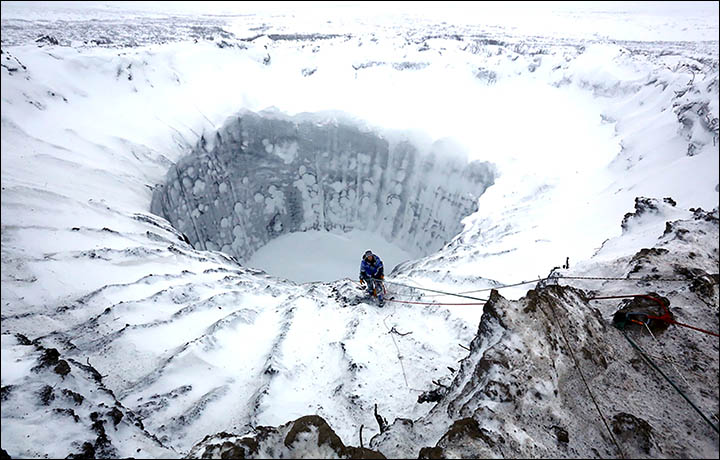
Our new pictures show how, for the first time, scientists used climbing equipment to reach the base of the crater - a lake at least 10.5 metres deep with a frozen surface.
Leader of the new mission, Vladimir Pushkarev, director of the Russian Centre of Arctic Exploration, told The Siberian Times: 'We managed to go down into the funnel, all was successful. We used climbing equipment, and it is easier to do this in winter, than in summer, with the ground now hard.
'We took all the probes we planned, and made measurements. Now scientists need time to process all the data and only then can they draw conclusions.'
The funnel of the crater is about 16.5 metres deep, not including an earthen rampart on the surface, formed in the blowout, of several metres in height.
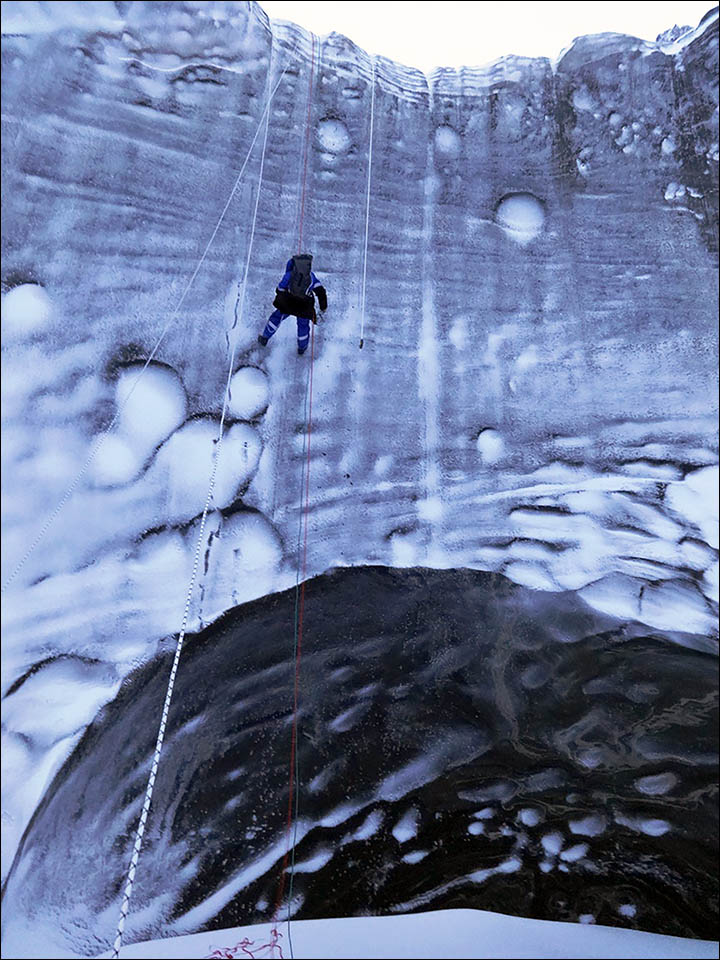
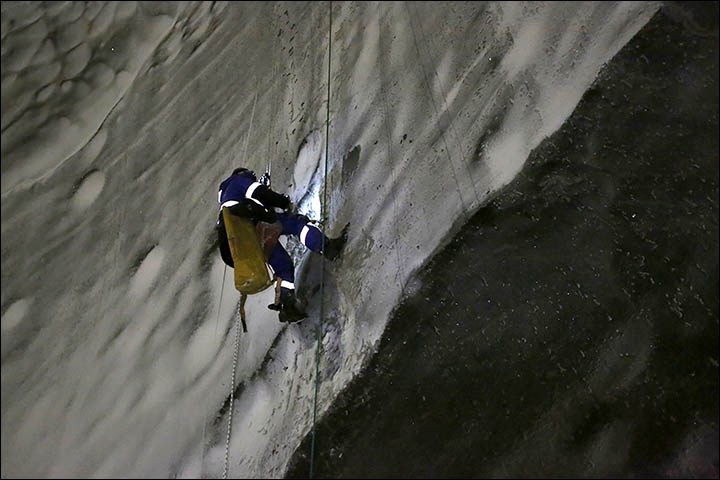
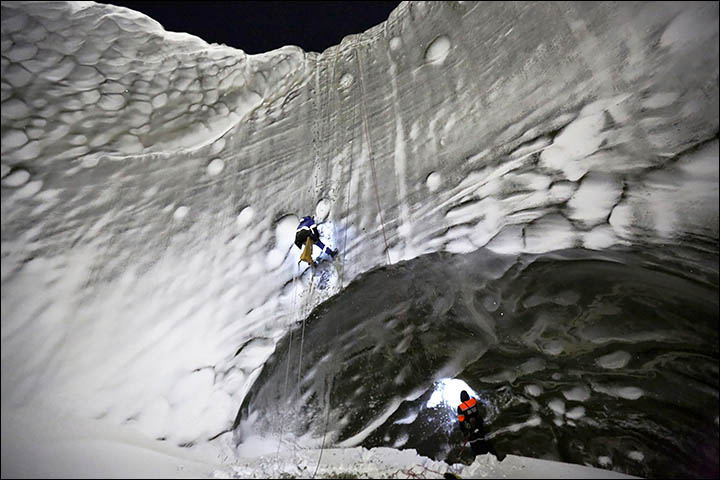
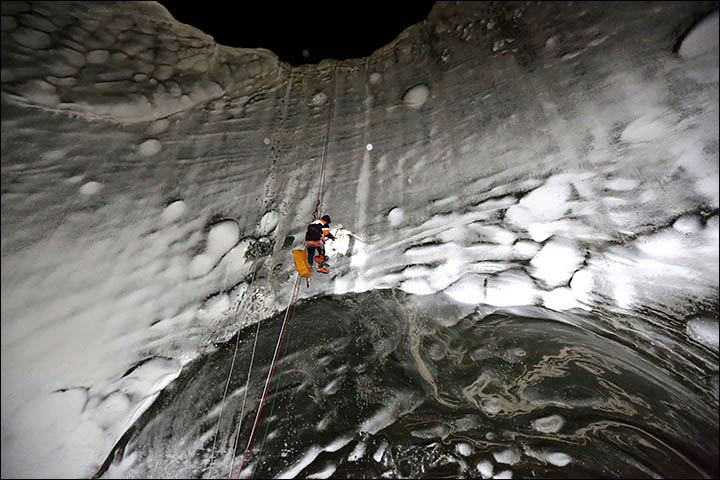
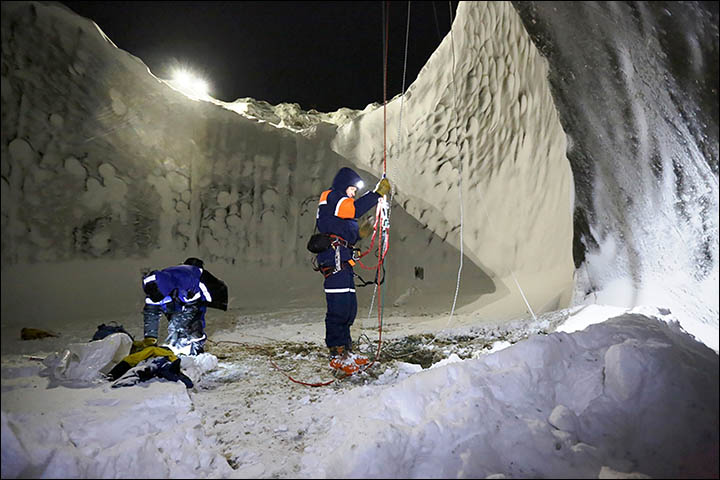
The research to the largest of three known holes - all recently formed - in northern Siberia was initiated by the Russian Centre of Arctic Exploration, and included experts from a number of institutes. 'They did radiolocation tests at a depth of 200 metres, took probes of ice, ground, gases, and air. Now they all went back to their institutes and labs and will work on the material. The next stage is processing of the gathered information.
'Then we plan to explore the surrounding area, comparing images from space, and even those taken in the 1980s, to understand if there are - or were - some similar objects'.
It is possible other such phenomenon existed but were not noticed earlier.
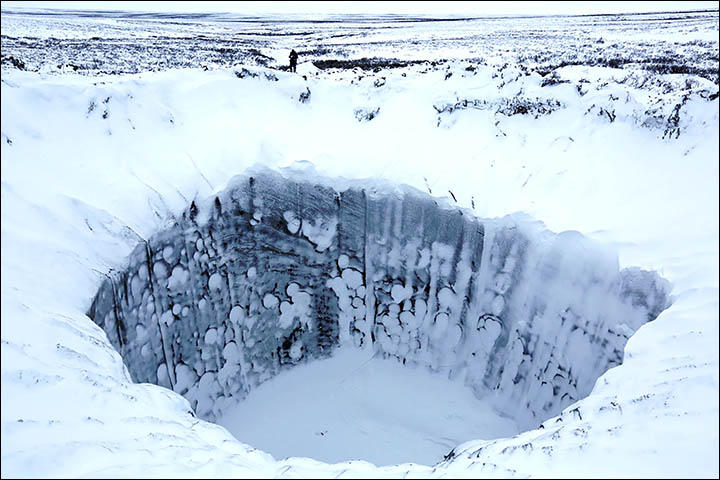
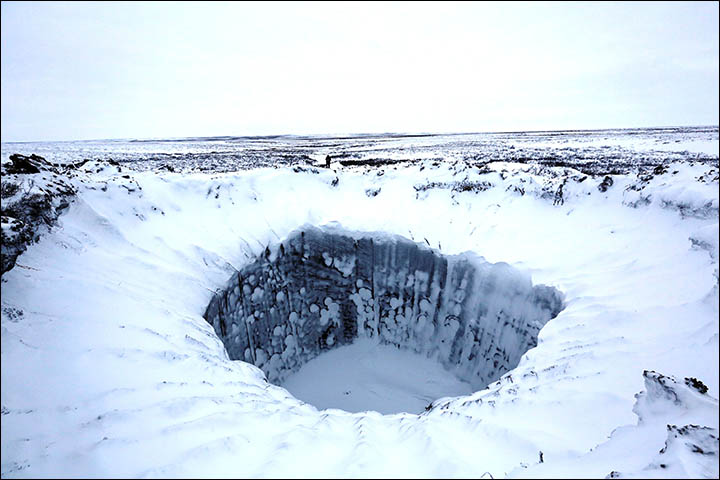
Mr Pushkarev claimed it is too early to draw conclusions on theories on the crater's formation, including the suggestion from Russian scientist Igor Yeltsov, the deputy head of the Trofimuk Institute, that heating from above the surface due to unusually warm climatic conditions, and from below, due to geological fault lines, led to a huge release of gas hydrates, causing the eruption.
When the crater was first highlighted, earlier this year, it stoked many different theories including a manmade hoax, the work of aliens from outer space, a meteorite or even a stray missile. These are now discounted.
'I've heard about this Bermuda Triangle idea, but I repeat, our scientists need to work on materials first and only then draw some definite conclusions. At the moment we don't have enough information,' said Mr Pushkarev, a climber, rescuer and explorer who led the experts to the scene in temperatures of minus 11C.
'We haven't worked with other funnels yet. We plan to do this, but first of all we need to understand completely the nature of this very funnel to be able to create a model which then we'll use to compare with other craters'.
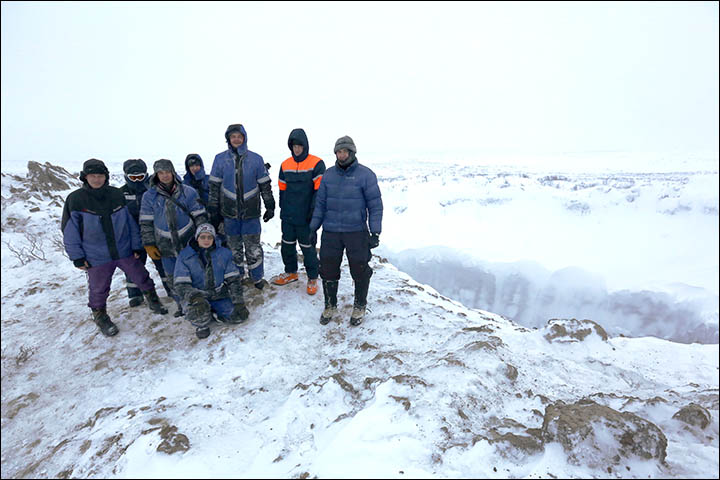
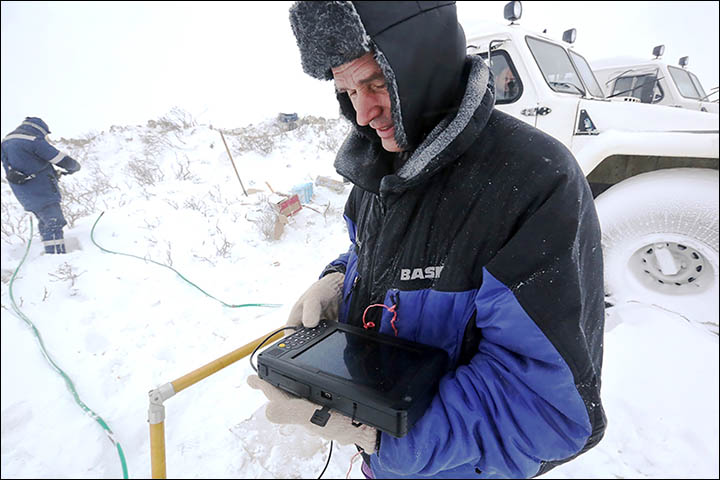
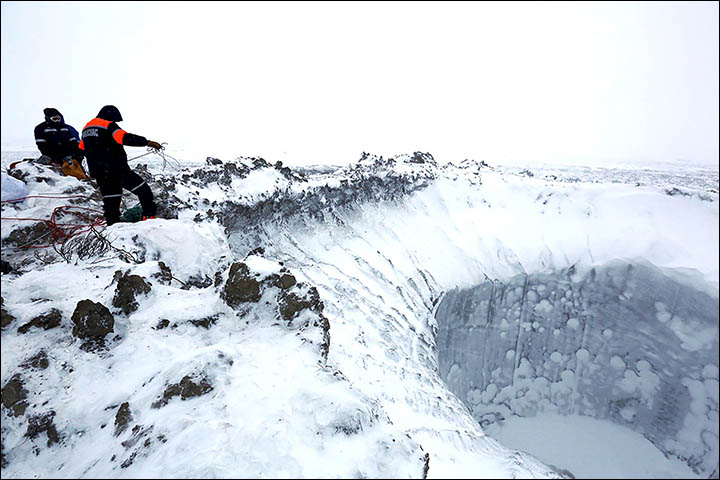
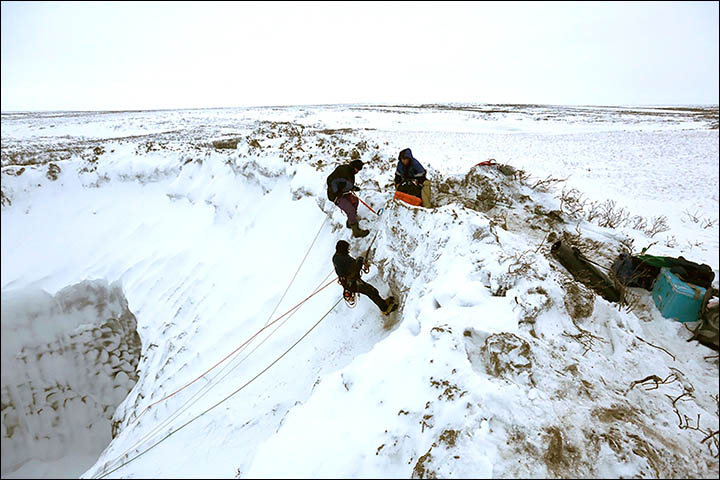
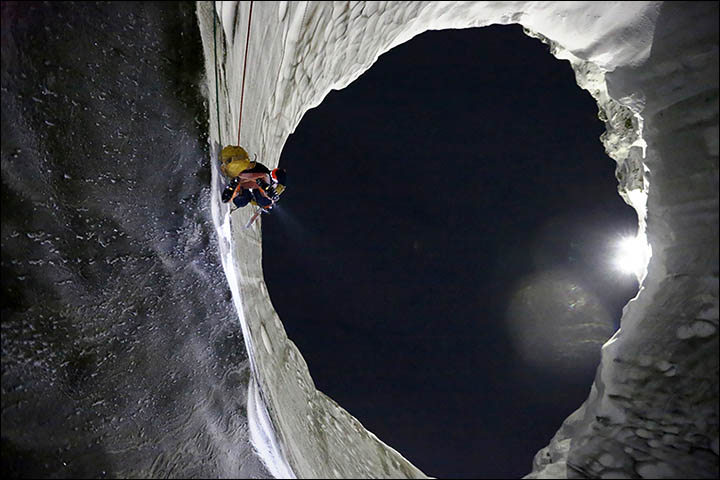
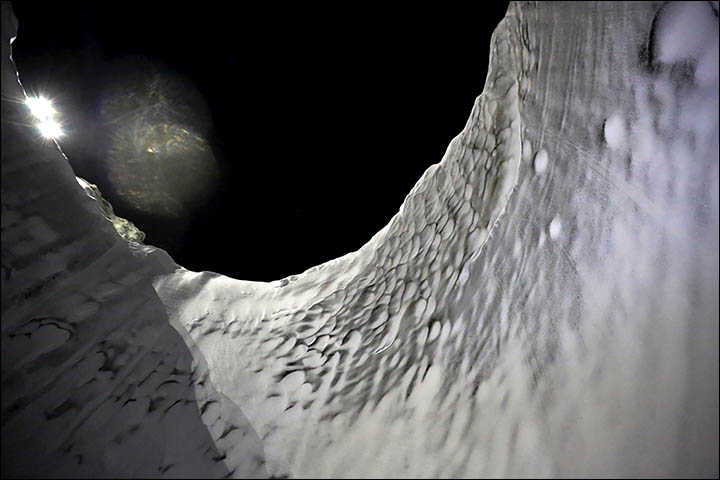
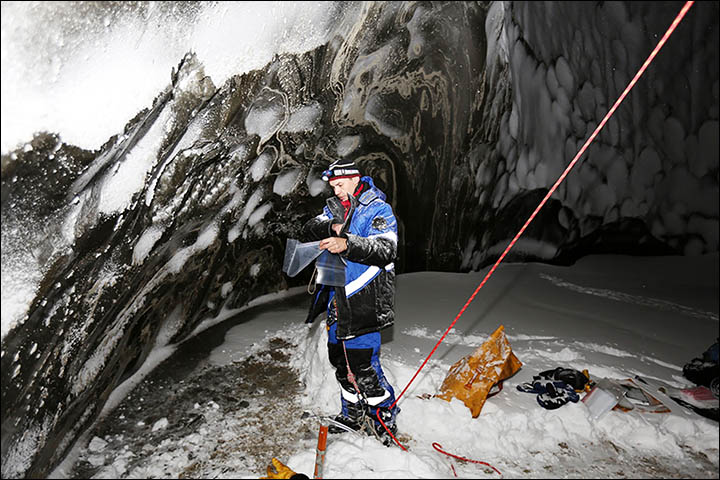
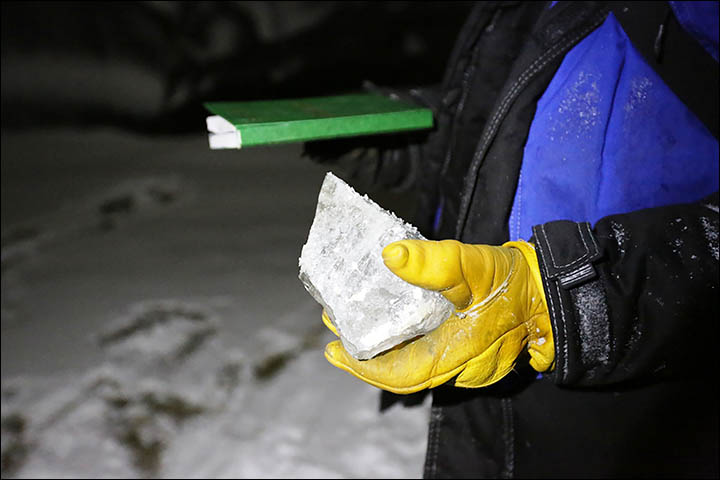
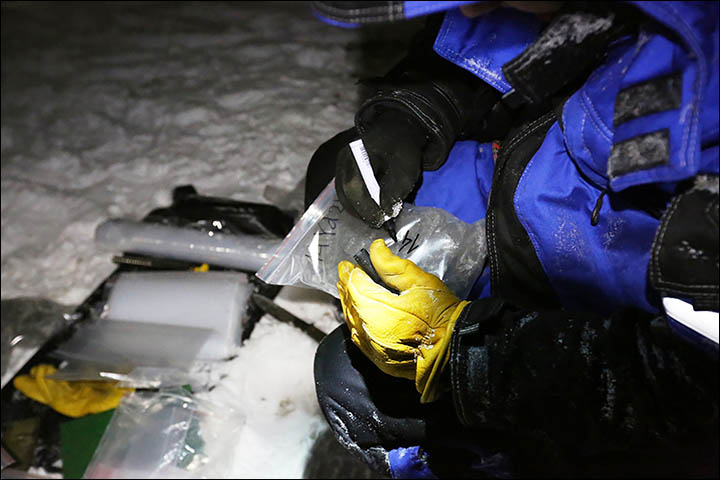
Mr Pushkarev stated: 'As of now we don't see anything dangerous in the sudden appearance of such holes, but we've got to study them properly to make absolutely sure we understand the nature of their appearance and don't need to be afraid about them'.
Gas hydrates are ice-like forms of water containing gas molecules, notably methane. They exist in permafrost regions such as northern Siberia, but also under the oceans in some parts of the world.
'The main element - and this is our working theory to explain the Yamal crater - was a release of gas hydrates. It turned out that there are gas hydrates both in the deep layer which on peninsula is several hundred metres down, and on the layer close to the surface', said scientist Vladimir Potapov before the latest expedition. 'There might be another factor, or factors, that could have provoked the air clap. Each of the factors added up and gas exploded, leading to appearance of the crater.'
He stressed: 'The crater is located on the intersection of two tectonic faults. Yamal peninsula is seismically quiet, yet the area of the crater we looked into has quite an active tectonic life. That means that the temperature there was higher than usual.'
The name Yamal means 'the end of the world', which ironically is also a description applied to the Bermuda Triangle for those lost on boats and planes. The areas stretches from the British Overseas Territory in the North Atlantic Ocean to the Florida coast, to Puerto Rico.
Professor Yeltsov said: 'There is a version that the Bermuda Triangle is a consequence of gas hydrates reactions. They start to actively decompose with methane ice turning into gas. It happens in an avalanche-like way, like a nuclear reaction, producing huge amounts of gas. That makes ocean to heat up and ships sink in its waters mixed with a huge proportion of gas.
'The same leads to the air to get supersaturated with methane, which makes the atmosphere extremely turbulent and lead to aircraft crashes'.
Most Users Ever Online: 698
Currently Online:
51 Guest(s)
Currently Browsing this Page:
1 Guest(s)
Top Posters:
easytapper: 2149
DangerDuke: 2030
groinkick: 1667
PorkChopsMmm: 1515
Gravel Road: 1455
Newest Members:
Forum Stats:
Groups: 1
Forums: 12
Topics: 11482
Posts: 58640
Member Stats:
Guest Posters: 2
Members: 19842
Moderators: 0
Admins: 1
Administrators: K

 Log In
Log In Home
Home
 Offline
Offline







